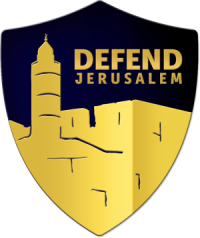In a recent report, MEMRI documents how Hamas is encouraging more terror attacks during Ramadan and instructing new recruits how to wage terror attacks.
By Rachel Avraham
According to a recent report published by MEMRI, “Hamas regards its struggle against Israel as a religious war, and therefore ascribes importance to attacks on it especially during Ramadan, which it calls “the month of jihad and victories” and “the season of attacks.” This year, as in previous years, the movement has published many inciting materials calling to increase the attacks on Israelis during this month.”
For example, MEMRI noted that following the recent terror attack near Ariel, the Al-Mutarad Telegram channel called on Palestinians in the West Bank to carry out more attacks of this sort: “This is a special call to every free and revolutionary [Palestinian] and everyone who possesses a weapon: Do not let another day go by without carrying out a blessed jihad operation to avenge the blood spilled in Gaza and in response to the occupation’s crimes in the West Bank. May you let Allah see your good deeds during this noble month.”
According to MEMRI, a graphic posted on the channel, hashtagged “Salfit operation” and “Ramadan of ribat,” shows a gunman shooting a rifle, and bears the message: “[On Ramadan,] the month of commandments and jihad, plan [your attack], select your target and use your weapon.” A similar graphic bears the message “On [Ramadan], the month of the resistance fighters, direct your bullets at the occupiers,” and is accompanied by an excerpt from Hamas’ statement welcoming the shooting near Ariel.
MEMRI added that a further series of graphics posted on the channel praised the March 3 stabbing in Haifa and urged similar attacks, describing this as a form of worship that is especially called for during Ramadan. A graphic posted on the day of the Haifa attack, captioned “Between Spiritualism and Jihad – The Ramadan of Resistance Has Appeared in Haifa,” was accompanied by the following message: “Today, on the morning of the third day of Ramadan, there was a heroic stabbing in the occupied city of Haifa, another show of sacrifice and bravery. A Palestinian resistance fighter ascended to heaven after managing to kill a settler and to seriously wound four others. This operation conveyed a firm message: that the resistance will not break, and that the blessed month of Ramadan is not just a time of worship but also a juncture where faith meets jihad and where the true meaning of sacrifice becomes manifest…”
Another graphic hashtagged “Ramadan of resistance” bore the message: “Stabbing the soldiers of the occupation is worship that brings us closer to Allah.” Yet another said, “On [Ramadan], the month of light, the flame of resistance burns. A self-sacrificing resistance fighter stabs the occupiers with a knife.”
According to MEMRI, many messages posted by Al-Mutarad contained general advice on establishing infrastructure for terror activity. One of them said: “…Secrecy is the cornerstone of every successful resistance unit. [The unit] must be hierarchical, with each member knowing only what he needs to know to perform his tasks. There must not be direct contact between all the unit members. Each unit must have a commander responsible for coordinating with the higher levels of command without exposing the other members or [their] tasks.”
Another post discussed the issue of recruitment: “…The process of recruiting [fighters] to every resistance unit must be meticulous. Select members based on criteria such as loyalty to the [Palestinian] cause, commitment, talent, courage, and excellent command of various skills, or from among people who have prior experience, such as released prisoners. It’s better to select people you know or people from circles [you] trust, in order to avoid disasters. After selecting [the members], they must be trained and prepared to take part in resistance operations…” The channel advises to buy or manufacture simple weapons for the unit, such as explosive devices, and conceal them in safe and secret places that will not be easily found.
According to MEMRI, the next post in the series addresses the issue of training: “…Once the members are recruited, the stage of training begins. This must be done in a safe place, far from the gaze of the enemy and the occupation, and include training in using weapons and planning operations, and in basic military tactics. It’s important to train quickly and secretly, and teach [the unit members] how to cope with difficult circumstances and unexpected situations.”
According to MEMRI, “Having provided advice on forming and training the cell, the channel provides practical instructions for implementing the attacks themselves. It especially recommends carrying out well-planned ambush operations that surprise the enemy and inflict considerable losses. It suggests, for example, to simulate a roadside breakdown by parking a vehicle on the side of the road, with fighters hidden inside, ready to surprise any soldiers who come to investigate. After the operations, it advises the attackers to “withdraw immediately,” “change their appearance and place [of residence],” “avoid [using] electronic devices,” “follow the enemy’s movements” and “prepare to go underground,” stressing the importance of “preparing an emergency plan” and maintaining “complete secrecy.”” Another post suggests using drones to drop explosives on Israeli localities, because “such operations are surprising and quick, which makes it difficult for the occupation forces to respond to them efficiently.”
